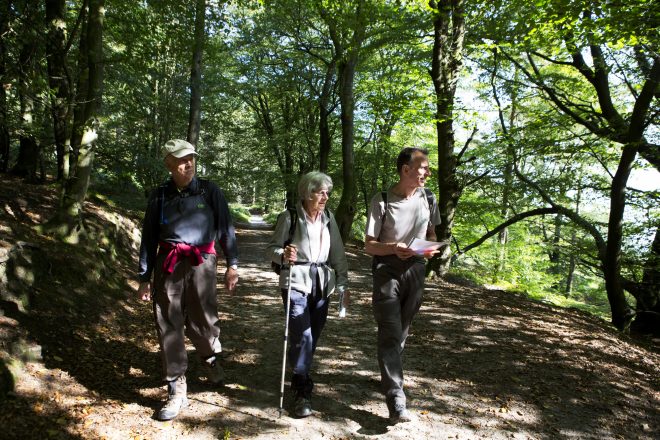Be “tick aware” when out and about in the South Downs
May 10, 2022

As tick season begins, people are being encouraged to become “tick aware” and take some simple precautions.
Lyme disease is an infection that can be passed to people when they are bitten by an infected tick. People are most likely to encounter ticks when doing activities in the countryside or other green spaces such as woodland. Studies estimate that 1 to 5% of tick bites can lead to Lyme disease.
Symptoms include a spreading circular red rash, which may appear as a bulls-eye rash, as well as non-specific flu-like symptoms. Although a lot of people associate the disease with the rash, a third of people bitten don’t report seeing one.
Allison Thorpe, who leads access and recreation in the National Park, has some simple tips for people:
• While walking in green spaces, consider wearing clothing that covers your skin to make it more difficult for ticks to access a suitable place to bite.
• Consider wearing light-coloured clothing so that you can easily spot ticks and brush them off.
• After spending time outside, check yourself, your clothing, your pets and others for ticks.
• Remove any attached tick as soon as you find it using a tick-removal tool or fine-tipped tweezers.
 Allison added: “We should all take five minutes to familiarise ourselves with the basics around tick prevention – dress appropriately – tucking trousers into socks can be helpful, check yourself, children and dogs for ticks after a walk, know how to remove a tick if you have been bitten and be aware of the signs and symptoms of Lyme Disease.”
Allison added: “We should all take five minutes to familiarise ourselves with the basics around tick prevention – dress appropriately – tucking trousers into socks can be helpful, check yourself, children and dogs for ticks after a walk, know how to remove a tick if you have been bitten and be aware of the signs and symptoms of Lyme Disease.”
If you have developed symptoms after being bitten by a tick or spending time outdoors, immediately contact your GP or call NHS 111, mentioning where you have been and if you remember being bitten.

